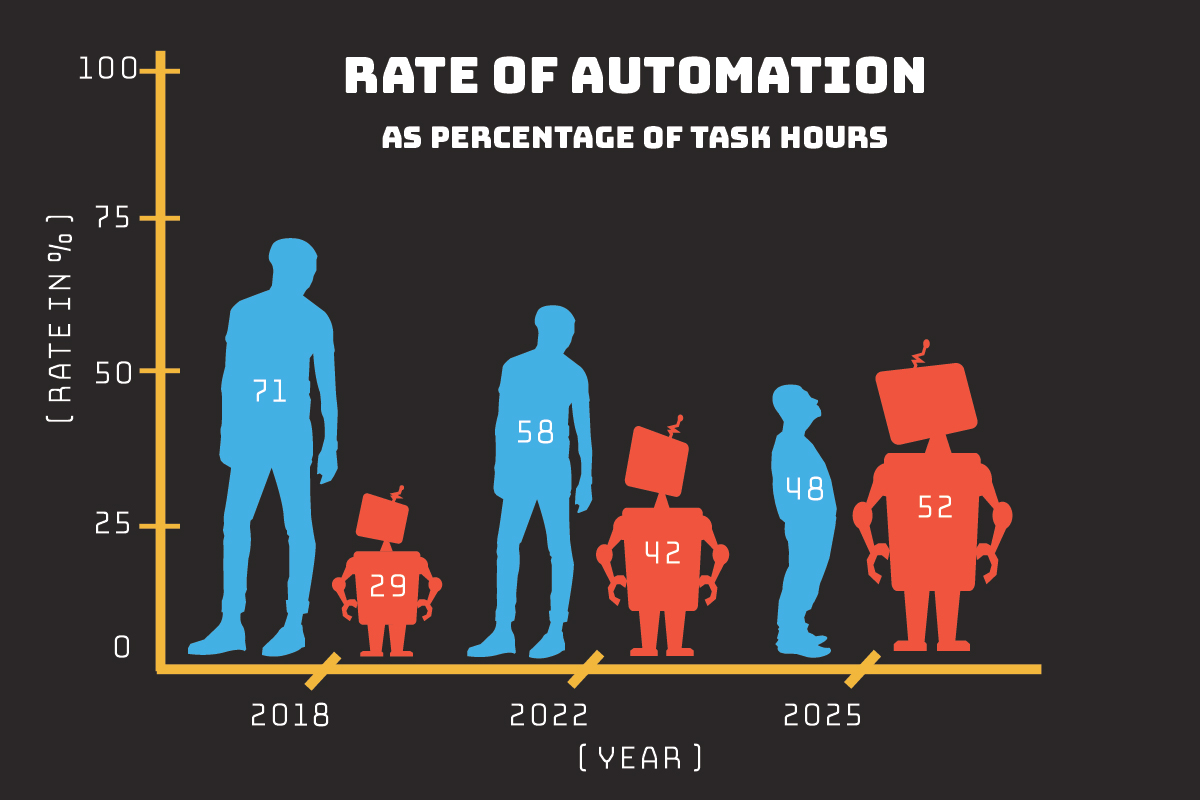Governments are unequipped to face the automation crisis
Although life has already been transformed by technological advancements, the rise of automation has actualised the prospect of mass unemployment. To keep people financially secure in such times, the Liberal government has discussed the provision of a minimum monthly income. This is generally referred to as “universal basic income” (UBI), but to call it universal is misleading, as it is generally spoken of in national terms and would therefore have detrimental effects to those in developing nations whose labour will no longer be useful on the global market. Not only that, individual liberties will be severely compromised, even in developed nations, due to wealth inequalities between owners of giant corporations and UBI recipients.
Automation began in the Industrial Revolution, when labour-saving machines threatened to replace manual workers. However, those left unemployed were able to switch occupations from one low-skilled job to another, like manufacturing the machines themselves. In contrast, the technological revolution of the 21st century has been so rapid that, when people are left unemployed, with cashiers being replaced by self-checkout machines, for instance, they are not able to switch to other occupations without undergoing substantial training — especially when the checkout machines could themselves be manufactured by AI-powered robots.
In the transportation, agricultural, and retail industries, automation is already becoming more common. While many necessary processes are run cooperatively between humans and AI at the moment, humans are becoming less and less important. The World Economic Forum predicts that, in two years, 42 per cent of total task hours will be completed by machines; two years ago, only 29 per cent of task hours were automated. Even skilled professionals in education, health care, and counselling bear the prospect of being replaced by AI. In the spring of 2017, the government of Ontario began a trial run of a basic income as a means to combat poverty. However, while people receiving the basic income could work jobs to earn additional money, the automation crisis is likely to have AI doing nearly everything better than humans, leaving those receiving a basic income in a jobless world.
The idea of a universal basic income appears to fulfill the financial burden left behind by the absence of jobs. One of the ways funds are expected to be sourced is from taxing corporations like Amazon that generate astronomical amounts of wealth. However, merchandise production and information and communication technology services are a major export for developing nations, and labourers in those countries are likely to have no place in the global market once the West establishes their own AI-powered manufacturing and service centres. And it is highly unlikely that the basic income will be extended to those in other parts of the world who aren’t able to support themselves without the current systems of global trade. Given that the West is rapidly incorporating advanced AI into their industries, it appears that the countries who lack the resources to support their newly unemployed workers will struggle to survive — especially considering how global economic inequality continues to widen.
The solution to automation doesn’t lie in slowing down AI development, however; AI seems to have already transformed our way of life beyond return. But resorting to UBI as a solution to automation, even if it proves to be feasible on a national scale, will nonetheless leave many recipients with a fixed income and no way of earning extra money due to the limited number of jobs available for humans to perform. Moreover, economic inequality between billionaires who control the capital by running the giant corporations and ordinary people who depend on the UBI is likely to further expand, hence limiting individual liberty for the latter. While the ordinary man would receive a fixed sum of money each month, those who own the AI technologies will, despite the taxing schemes, have much more wealth to expend. The absence of a line of promotion would make it nearly impossible for UBI recipients to control any means of production.
Ultimately, given that both unskilled and skilled workers stand to be replaced by AI, it is necessary that politicians address the threat by developing new social and economic models before it is too late, from new training programs for those who are already losing their jobs all the way to globally cooperative long-term solutions. Until then, Pope Francis has initialised the reliable old call to the divine by calling on Catholics to pray against AI supremacy.


